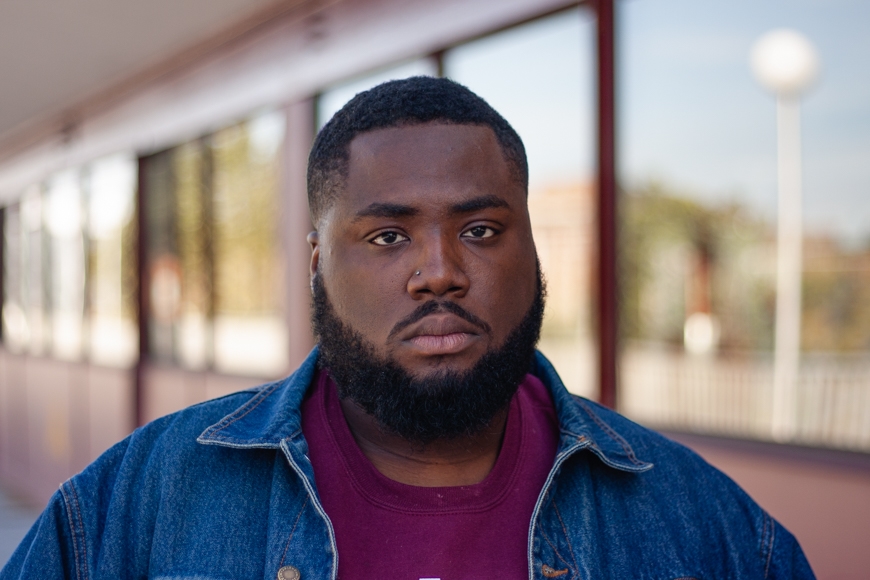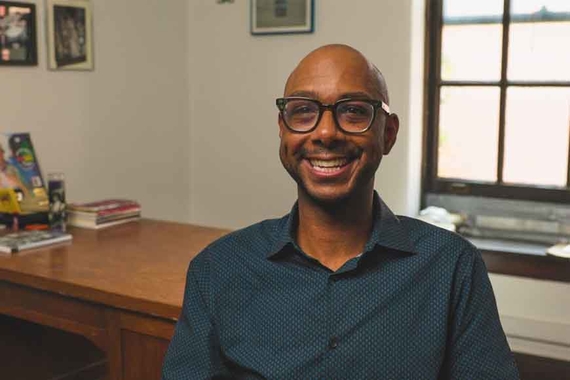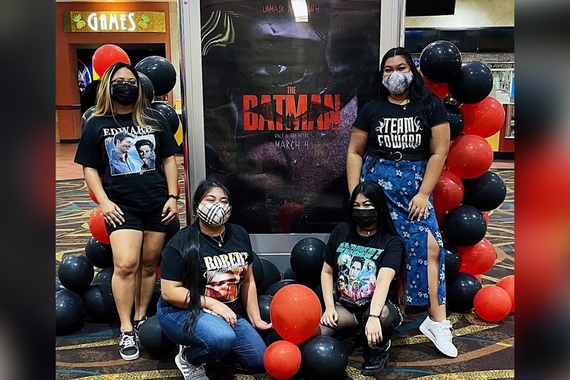Studying Black Life in the Midwest
During the 1980s and ‘90s, serial murderer Jeffrey Dahmer lived and killed in Milwaukee, Wisconsin. His victims were predominantly Black men, and American studies doctoral candidate Kidiocus King-Carroll recalls his grandmother’s stories about life in the Black community of Milwaukee at the time of the murders.
She lived near Dahmer, and after he was convicted of his crimes, she heard sensationalized rumors from people in the neighborhood about what he was like and the things he did. The community made sense of the horrific events by coming together and talking to one another. King-Carroll is interested in the way that his grandmother and the larger Black community grappled with these tragedies, and stories like these are the basis of his autoethnography.
Uncovering the Meaning of Home
Currently, King-Carroll is writing an autoethnography about growing up in the Midwest. The work centers the experiences of himself and his family in the broader social context of Milwaukee. Each chapter illustrates a different expression of Black knowledge and life.
When he thinks about the heinous crimes of a serial killer, for example, he writes about why Dahmer was able to go into a predominantly Black neighborhood and commit the crimes he did. King-Carroll contextualizes the events by thinking about what allowed Black communities to become susceptible to that violence. He says that it is important to consider how economic disparity, divestment in Black communities, and hyper-segregation of Milwaukee at that time created vulnerabilities.
Additionally, King-Carroll says that the stories he has collected inform us of a unique and important perspective on how a community related to each other that you can’t get from a newspaper or a book. He considers the hyperbolic stories about Dahmer, like those told by his grandmother. They indicate the awareness that Black people face a structural terror, but they serve as evidence of the creative ways that Black people have of documenting and living through pain.
“I like to think of it as one type of truth, and one way in which people who are living within that are looking at the situation,” he says. “I’m interested in contextualizing the most sort of personal stories, thinking about those sort of larger phenomena.”
Valuing the Everyday
In one chapter about the meaning of home in King-Carroll’s book, there is a section focused on Spades, a popular card game in the Black community he grew up in. He thinks about the important communal bonds that are formed during everyday aspects of Black life, such as playing a card game.
“Growing up, my grandmother was a very avid card player of Spades, and so I spent so many hours playing in the game with her, and she's a very serious player, and she doesn't abide by cheating or anything,” King-Caroll says. His interaction with his grandmother during this time taught him about the game Spades, but it also taught him about life in general, about his grandmother, and about his family history.
“It's a game and it's for fun and enjoyment, but also, it's like, it's a form of sociality and a way of sort of relating to people,” he says.
Studying Black Life in the Midwest
King-Carroll’s connection to his hometown and the Midwest in his research comes from the opportunity he sees to contribute to the limited study of Black life in the Midwest. “When we do think of Black people in the Midwest, we only think of them within the context of cities like Chicago and Detroit,” says King-Carroll. “And it's usually with this sort of language about crumbling inner cities and gun violence.”
Much of the existing academic scholarship on Black communities and Black life focuses on societal disparities, such as institutionalized racism in economic, educational, and justice systems. King-Carroll’s research adds depth to the existing academic scholarship of Black communities. He highlights the valuable familial ties, meaningful social relationships, and joy experienced by Black communities.
“I initially came to graduate school because I wanted to do work on Black Lives Matter,” King-Carrol says. “But as I was going through the process of thinking about my project and what it could be, I found myself interested in thinking through these ideas concerning home; what home means and what home means for blackness and black people.”
The Black Midwest Initiative
His work in Black Midwestern studies led him to become involved in The Black Midwest Initiative, which was started in the fall of 2017 by American Studies faculty member Terrion Williamson. “I saw that it basically fit perfectly with what I was doing. And so ... there was no way in which I could not sort of be a part of the process,” he says.
The Black Midwest Initiative is a collective of academics, artists, and organizers who highlight the stories of Black people in the Midwest through their work. King-Carroll is on the organizing committee, and he recently organized and spoke at Black in the Middle: The Inaugural Black Midwest Symposium. The symposium featured poetry readings, film screenings, speakers, and keyword panels, including one entitled “Home” with King-Carroll. It was held at the University of Minnesota on October 17-19, 2019, and the next symposium is currently planned for 2021.
Building Richer Narratives
King-Carroll wants his research to shed light on the life that is lived and expressed by Black people through their everyday interactions.
“Black life is much more than the abjection, or sort of the violence that brought it into existence,” he says. “Thinking through all of these things, and sort of solving all of these things, you know, in whatever ways are sort of important. But we also have to think about what's occurring on the inside.”
This story was written by an undergraduate student in Backpack. Meet the team.



